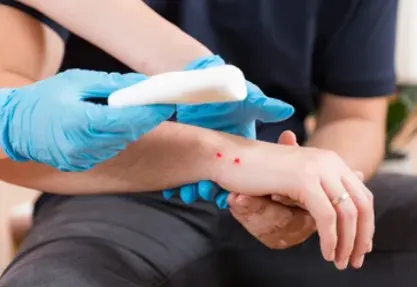 Welcome
Welcome
“May all be happy, may all be healed, may all be at peace and may no one ever suffer."
Reproductive tract infection and skin infections - Generics
Reproductive tract infections (RTIs) and skin infections are two common types of infections that can affect people of all ages and genders. These infections can be caused by bacteria, viruses, fungi, or parasites, and may present with a variety of symptoms.
Reproductive tract infections:
RTIs are infections that affect the female or male reproductive system. These infections can affect the uterus, cervix, fallopian tubes, ovaries, vagina, testes, and prostate gland. Common symptoms of RTIs include abnormal vaginal or penile discharge, pain or burning during urination, pain during intercourse, and lower abdominal pain. Some common causes of RTIs include sexually transmitted infections (STIs) such as chlamydia, gonorrhea, and herpes, as well as bacterial vaginosis and yeast infections.
Treatment for RTIs typically involves antibiotics or antifungal medication, depending on the underlying cause. In some cases, lifestyle modifications may also be recommended to prevent recurrence of the infection.
Skin infections:
Skin infections can affect any part of the body and can present with a range of symptoms including redness, itching, pain, and discharge. Common types of skin infections include bacterial infections such as impetigo and cellulitis, fungal infections such as ringworm and athlete's foot, and viral infections such as herpes simplex and shingles.
Treatment for skin infections varies depending on the type of infection and severity of symptoms. Antibiotics or antifungal medication may be prescribed for bacterial or fungal infections, while antiviral medication may be used for viral infections. In addition, it is important to practice good hygiene habits and take steps to prevent the spread of infection, such as avoiding contact with infected skin and covering open wounds or sores.
In conclusion, reproductive tract infections and skin infections are common types of infections that can cause a variety of symptoms. Treatment typically involves medication and lifestyle modifications, and prevention involves good hygiene practices and taking steps to avoid contact with infected skin.

N/A

Nausea and vomiting assoc...

Cleansing of the colon

Amenorrhea-galactorrhea s...

Poison ivy

Rabies

Osteogenic sarcoma

Skin ulcers and wounds
Reproductive tract infection and skin infections, প্রজনন ট্র্যাক্ট সংক্রমণ এবং ত্বক সংক্রমণ
To be happy, beautiful, healthy, wealthy, hale and long-lived stay with DM3S.